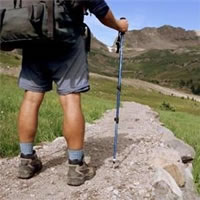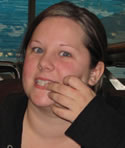Every writer, whether amateur or pro, has at some point dreamed about the amazing lifestyle of a travel writer.
It’s rewarding already just to be able to make your living with your craft, and travel writers get to see some of the most amazing places in the world while doing just that, living what seems to be a life of complete freedom.
But life with your pen out on the road is not always smooth sailing, and there are trials and tribulations just as with any other career choice.
You see, after a while, even the road can become monotonous and lose its flavor, but no matter how enthusiastic you feel, you’ve still got to produce content.
Add that in with the fact that a writer is always on the move and yet still expected to get enough insight on a place to reveal it to readers in an in-depth fashion. How does one spend a week in one place and produce quality writing while struggling to overcome a constant state of culture shock?
Let’s try to answer these questions as we look at some good tips for writing on the road.
1. Don’t Over-paint the Picture
One of the biggest temptations for someone new to the travel game is to look at everything from behind rose-colored glasses, and this typically comes out in their writing. They paint everything to be magical and perfect, and their stories are laid out in romantic, flowery language.
But the reality is that over time the road will lose its luster, and any reader who knows that is going to see right through your prose. Not to mention that the harsh realities of a place are often just as interesting as the poetry used to describe it—probably even more interesting.
Look over what you’ve written, and if it seems like you just wrote a brochure, you might want to have another look. It might be your limited perspective that is causing the issue—perhaps you’re still caught up in the magic of the road. Or perhaps you are too caught up in selling the romance of travel.
Tone it down and your words will not only be more true, but seasoned readers will respect you more.
2. Harness the Dragon
Time is always an issue when you are traveling. There is so much to see, not enough time to see it, and everyone you meet is a fascinating person eager to have a drink with you. One of the best ways to save time when writing articles is to learn how to speak articles instead.
Speech to text software, like Dragon NaturallySpeaking, is a great tool for your arsenal. No matter how fast you can type, you’ll never type as fast as you can speak. Keep in mind that Dragon Naturally Speaking will seem to be extremely inefficient at first, but there are plenty of exercises and training modules in the program so you can train it to your voice. Use them! Also, the software is designed to adapt to your voice over time, so the more you use it the better it gets at what it does!
It will take some patience in the beginning but it is an extremely worthy investment of your time.
3. Get Off the Beaten Track
Always a good idea when traveling, travel writers nonetheless feel they need to capture the biggest sites that everyone comes to a specific country to see. So, even if they are the more adventurous type, they end up going the same places that everyone goes.
It may depend on what audience you’re writing for, but my best advice is that you always head in the opposite direction of everyone else and just see what happens. In a foreign country, the seemingly mundane often creates the most interesting, humorous, and exciting moments.
If you are stuck to the biggest attractions by assignment, always look for another angle and point out things that others miss. Rolf Potts’ story about trying (and failing) to crash the set of “The Beach” when it was being filmed in Thailand (featured in his book “Marco Polo Didn’t Go There“) was far better than any story I’ve ever read about the Eiffel Tower, for instance.
4. Always Take Notes
An extremely valuable habit for a writer to form, especially in this genre, is the habit of taking notes. Travel is exciting, and while you are caught up in the moment, it is easy to think to yourself that there is no way it will slip from the forefront of your mind. But as the day winds down, you will find yourself sitting in front of your laptop screen, trying your hardest to grasp the best details out of what happened.
Carry a small notebook on you at all times. And don’t only take it out when you think you are going to do something worthy of a story, because you never know when good fodder for a story will jump out of nowhere.
5. Take a Walk
One of the hardest things about travel writing is the fact that you have to get to know a place so quickly. You are often traveling from town to town, given but a few days to a week to get to know the place. You might be tempted to get in a car and cover as much of the place as possible.
But slow down, chill out, and take a walk. If there is one thing I will never forget after all my travels it is that there is no better way to get to know a place than to step outside your door and hoof it. Walk the neighborhood and soak it all up, or walk out into the city in a beeline and just keep going until you get lost (don’t forget to write down the address to your hotel for the cabbie just in case).
If you have to go further, ride a motorbike, or bicycle—the important part is to slow down and soak it in.
6. Don’t Glaze Over Culture Shock
Writers always want to seem like an authority on their subject, but when you are a travel writer, always experiencing new places and new things, you will never be the complete authority on anything.
Don’t be afraid to reveal your awkward moments, your embarrassments, and your mishaps. These are the things that other readers who have traveled can relate to and it makes you seem more human.
7. Take Risks
Finally, if you want to produce good content on the road, you should be willing to take risks—if your idea of world travel is sitting in world class resort with a bottle of sun-block in one hand and a cold ice tea in the other, you will be waiting a long time for anything interesting to happen.
Hop on the backs of motorbike taxis where death on the road seems a certainty. Eat eyeballs, barbecued rats, giant fried beetles, and anything else they throw on your plate. Sample that homemade whiskey from the dusty bottle some farmer hands you while touring through the middle of nowhere. Go hang-gliding in the Swiss Alps.
In short, get out there and live the road. Bad things will happen here and there, but the same is true if you never left your home. And all the other adventures you have in between, well, those are the dreams that good travel writing (and life) are made of.
~ Kimberly
What tips would you offer beginning travel writers? Share your advice!






I’m soaking up every word of this advice. Great stuff!
From the first tip, “They paint everything to be magical and perfect, and their stories are laid out in romantic, flowery language.” You are right, you can sniff that out in a hurry and to me, that’s an immediate turn off.
That’s great Sheila, I’m glad you found the article helpful:)
Excellent advice, Kimberly! I do occasionally make use of a small digital recorder to take notes when I can’t manage a paper & pen, but I’ve never tried any software like Dragon to convert it to text ….. I’ll have to give that a try – what a timesaver!
I also agree with you on getting out and walking – I try to do that whenever I can when I’m traveling – you really do see and experience so much more that way, and any time I can slow my pace for a little while helps keep me from always feeling so rushed.
Thanks for this post!
People really do say that if you want to really experience a new place slow it down as much as you can. I’m glad that you get out and walk around when you’re traveling. It’s funny because sometimes you can get more out of the ten minute walk to the museum than the three hours you will spending inside it!
Thanks again for the opportunity to contribute.
Hi Kimberly,
thanks for the great advises… I’m going to have a 3 months walkabout in South America and I’m planning to write a lot while there, so always a small notebook in my pocket!! :)
Hi there Daniel, thanks for the positive feedback. Three months in South America sounds amazing! Keep in mind what Trisha said above, a digital recorder can be just as useful as a pen and paper.
I’ve been a travel writer since 1980, published mainly in print until recently when most newspapers gave up freelancers and print publications are hard to come by. I think you’ve given excellent tips here. I have taught travel writing classes since 1994 and this is pretty well what I tell people who want to write travel. Nowdays though, the style has changed too. The journalism style used in most print mags seems to be taken over by blog-style writing for on-line (short and more “i” focused). I’ve had to start changing my style. I have also noticed that not all the travel bloggers are that great writers although their subjects are interesting.
As for FAM trips, I have only gone on a couple locally and frankly prefer solo travel where I can go and do what I want to see and where I want to be. I tend to be more of a budget traveler, although the occasional ‘treat’ of a fancy hotels is nice. (I once won a trip to Malaysia and got to stay at the Mandarin Oriental which was amazing). Mostly I pay my own way and my own costs. And to tell the truth the pay these days sucks. Stories I used to get at least $150. for (print) are now lucky to get $10 on-line. So don’t expect to get rich quick or make a full-time career out of it unless you are willing to live poor. I supplement my income by teaching writing. I worked full time at daycare for many years and it’s only been the last couple that I am a ‘full time writer’ but I am too poor to travel as much as I’d like to so when I do go I carefully chose where I want to go and what I want to see where I know I’ll get good stories out of it.
By the way, my website was designed to mentor new writers. I pay a bit for stories but it gives a platform for paid publication to new writers. Check it out (and please read the submission guidelines!)
Oh yes, the website for my travel zine is http://www.travelthruhistory.com
Please feel free to submit if you have something that fits the categories.
The harsh reality? I only get 4-5 hours of sleep a night when I’m traveling, so I stumble through my trips, but I wouldn’t trade my job for the world.
Well, according to Dr. NakaMats (Japan) the key to longevity is 4 hours of sleep a night and one 700 calorie meal a day. So maybe you are sitting prettier than most of us:)
Really though, traveling is exhausting even when you do get more than 5 hours sleep. Of course you’re right, the pay off is huge. I’m pretty sure travel writers are a different breed of human…;)
Hi there Ruth, thanks for the comment. You sure hit the nail on the head with blog style writing taking over print mags. Bloggers really don’t have to be excellent writers as long as they can rope in their audience with an amazing story. Sometimes the problem is finding a blog with quality content. And with the amount of blogs out there the competition is pretty fierce in keeping your audience interested in what you’re saying.
It’s sad that the money in writing has gone down so much over the years. Independent blogs don’t have the big budgets like the print magazines so they pay far less per article. Because there are so many of them the price keeps getting driven down.
That’s a very nice site you have Ruth, I would love to send something over to you. I’m sure it will be a good fit for your site. I also noticed you are a fellow Vancouverite! :)
“4. Always Take Notes”
In some cases you don’t need to use notebook to write notes. Sometimes I just take pictures with street names or names and description of monuments if they have one. Not always it is possible, but sometimes it makes life easier :)
lol, good call! I’ve done this a time or two:)
This was a great set of tips, thank you!
I was a little disappointed with #3 though, get off the beaten track — I feel like this is becoming an overused term in travel writing. And typically it’s far easier said than done. Tips on figuring out how exactly to do that would be great.
I loved #7. That’s definitely been the source a lot of my most memorable travel stories.
Jason
Hey there Jason, i’m glad you like number 7:) I’d love to hear about some of you’re rides!
Couldn’t agree with you more about the overuse of “off the beaten track”. We gotta figure out some new wording for that one. Perhaps i’ll put together an article on how to get off the beaten track. One tip I have for you know though is befriending a local. Locals are the golden ticket to getting off the beaten track.
Kimberly
I can attest to the fact that if you are writing a lot, you should be using Dragon Naturally Speaking. It can be a pain to get it trained initially and you do hit words that you will have to thump it in the head to learn, but the writing goes a lot faster and is more natural when you are just speaking instead of writing.